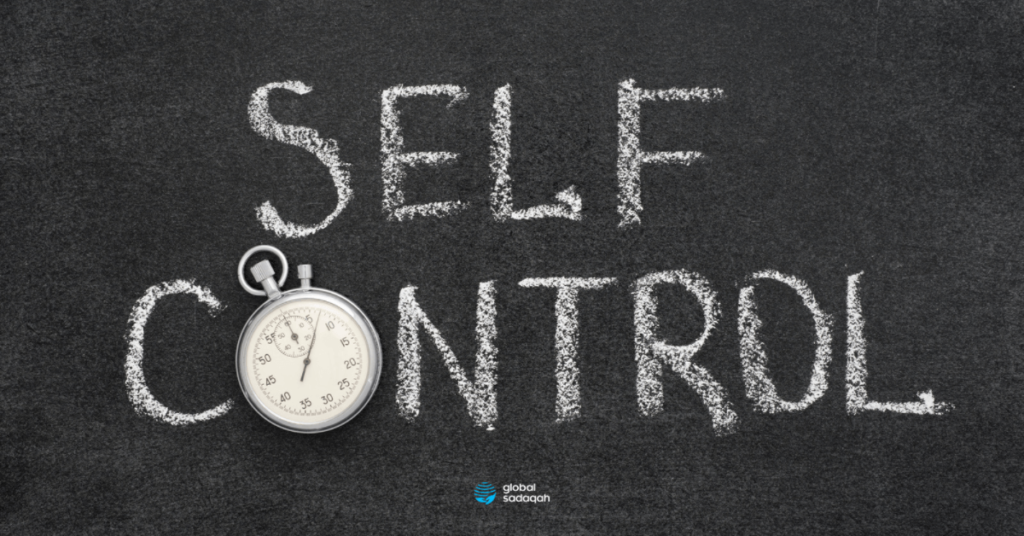Fasting is difficult and exhausting, but it is a challenge that is supposed to improve willpower and cultivate patience and perseverance attributes. Interestingly enough, Sawm is the Arabic term for fasting and this literally means “self-control” and “restraint.” Self-discipline is aided by refraining from satisfying physical urges. A Muslim’s good habits and manners are cultivated through this self-control.
During Ramadan, Muslims practise self-control to keep their souls from succumbing to their egos and to nurture their souls to reinforce their faith and to filter out undesirable emotions like wrath, greed, selfishness, intolerance, arrogance, and dishonesty.
Muslims cultivate noble attributes through this self-control. “Good habits come from resisting temptation,” says an Indian adage.
Fasting during Ramadan is one of Islam’s five pillars — the religion’s core obligations — and it extends beyond eating to include other vices such as smoking and sexual interactions.
However, as lavish iftar feasts and fast-breaking take place, many Muslims are divided by the fact that food waste often increases during a month of constraint and giving, as eateries over-deliver at the end of the day’s fast and households prepare more food than their stomachs can hold.
Evidently, the aspect of self-control during Ramadan is both a pertinent point and a constant struggle. Understandably, the challenge of controlling the temptations so inherently part of us as human beings can be quite daunting.
Here are a few actionable insights on the psychology of self-control and how to apply a little more to this coming Ramadan.
Focusing on mental toughness

It’s crucial to have mental toughness. It refers to one’s ability to bear adversity and eventual challenges. Being tough entails resisting heated impulses during designated productivity time windows, allowing you to blaze through mounds of work with incredible discipline and speed.
Being tough also entails persevering with started endeavours, projects, or chores, even when the odds are stacked against you and the pressure is unbearable.
It should come as no surprise, then, that mental toughness is a crucial character attribute across a wide range of fields, including entrepreneurship, professional sports, and the military.
There is a direct correlation with mental toughness and physical toughness, so be sure to stay fit during Ramadan by performing moderate physical exercises. At the very least, move around to keep the body active and the mind will follow suit.
You don’t have to add severe intensity, you just have to create dynamic movement in the body to trigger a physiological-psychological connection for stronger mental capacity. It might get you through the day.
Leverage on inner-dialogue

Positive self-talk can be summed up in the following aphorism: Remind yourself that no matter how bad things are, they will eventually get better. Humans are known to utter hundreds of words to themselves internally. So why not use positive self-talk to push yourself to your limits?
Apart from isolated self-talk, it’s worth mentioning that religious activities like reading the Quran during Ramadan can help remind you about your main objectives for the day, and soothe your wandering mind.
Know the limits of self-control

Despite the fact that self-control can be enhanced, it is a finite resource.
In a classic 1998 study, volunteers sat at a table with two plates, one filled with freshly made cookies and the other with radishes. Some were told they needed to eat the cookies, while others were told they needed to eat the radishes. They were then given a puzzle to solve that was secretly impossible.
In around eight minutes, those who had eaten the radishes but refused to eat the cookies had given up on the riddle. However, those who ate the cookies—and so had better self-control—worked on the problem for about 19 minutes, nearly twice as long as the radish group.
This proves that self-control has its limits, and if you acknowledge that then you are more in control of your own psychological wiring than most. Do not overwhelm yourself with too many tasks during Ramadan, try not to push yourself too hard and stay within your limits because the self-control resources you have are already being used to resist the call of hunger.
Remove the source of temptation

We are not wired to constantly resist temptation; in fact, according to research, most people resist temptation by removing it. Training self-control by repeated practice does not result in widespread increases in self-control, according to a study published by the American Psychological Association.
So don’t beat yourself up if you don’t have much self-control; we’re just not wired that way. So, how do disciplined people exist if they aren’t wired to have self-control? They eliminate temptation and make self-control easier.
Remove the temptation rather than striving to reject it. If you are striving to complete your fast then stay away from food in all its forms. Don’t hang around your colleagues during lunch time, don’t scroll through social media, and don’t walk by restaurants. Try your best to keep the sources of temptation far removed.
Remove temptations from your environment to set yourself up for success. It aids in the automated and self-reinforcing nature of decisions, allowing you to focus on more important goals and decisions.
Focus on Dealing With Stress

When we deprive ourselves from the most basic of desires – food – there is a good chance that your body starts working against you. Your hunger can cause anxiety, stress, and mild mood swings.
Stopping and taking a few deep breaths allows your heart rate to drop, allowing you to relax in the present moment. Make sure you exercise on a regular basis, eat healthy, and get enough sleep. Everything you do enhances your focus, cognitive performance, and overall health.
When your blood sugar is low and you are sleep deprived or food deprived, you make poor decisions. Exercise can help you sleep better and maintain control, of course exercising during Ramadan should not be too intensive.
Regardless, when work and life become stressful, learning how to manage stress in a healthy way guarantees you have the energy to keep going.
Make Your Task More Attractive

Increase the worth of your task now that you’ve undervalued your distractions. Surely, the task of completing a full day of fasting for Muslims is a noble one, but we can easily forget that in the heat of the moment.
In that regard, it’s important to remind ourselves about the very attractive rewards from completing our fast, as well as try and make the task of fasting a little more enjoyable throughout the day.
According to a cross-cultural study, American kids view homework as a dreaded duty, whereas many Chinese students view it as beneficial practice.
If that’s a stretch for your task, think of how good you’ll feel when you’re done, how relieved you’ll be to cross it off your to-do list, or how relieved you’ll be to avoid feeling guilty.
According to a 2014 research, those who only listen to exceptionally good audiobooks at the gym go to the gym 51 percent more often. House Cleaning and yard work could be done in the same way. These are all applicable for Ramadan when the stomach starts grumbling.
Make changes to your surroundings

Making changes to your immediate environment may make a difference; happily, small modifications can have a great effect on how your self-control is applied in real time.
During a 2006 study, secretaries ate more candy whether the dish on their workstation was clear versus opaque, and when it was on their desk versus 6 feet away. In a similar vein, you could install an anti-social media app on your computer to avoid pictures and videos of scrumptious food, hide your smartphone in a drawer, or hide the device in an opaque container.
In fact, environment changes may also be used in higher-stakes self-control scenarios. In this case, Ramadan comprises mostly dealing with resisting hunger, although there is also the aspect of resisting other nafs.

